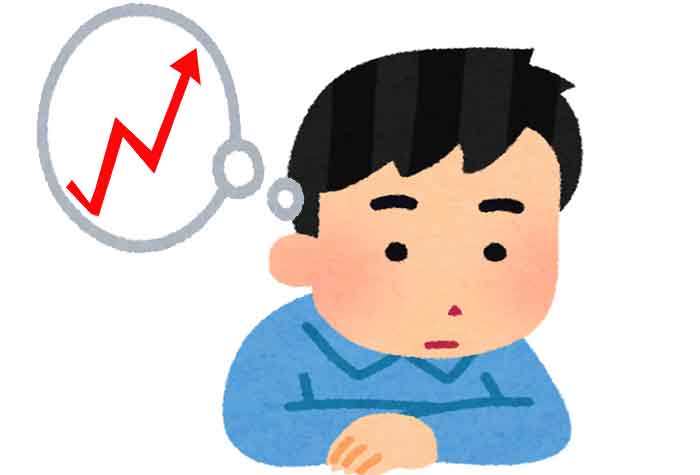
Answers to SEO
Answers to SEO: A Comprehensive Guide
In today’s digital age, mastering Search Engine Optimization (SEO) is crucial for improving website visibility and driving organic traffic. This blog post will provide in-depth answers to common SEO questions, using essential terms and concepts.

Understanding SEO
SEO (Search Engine Optimization) is the practice of optimizing a website to increase its visibility on search engine results pages (SERPs). This involves using specific keywords,
creating high-quality content, and implementing various technical strategies to improve ranking.
Key SEO Concepts
Keywords: Keywords are the terms and phrases that users type into search engines. Identifying and using relevant keywords in your content helps search engines understand the topic of your pages, improving their ranking.
Content: High-quality content is essential for SEO. Content should be informative, relevant, and engaging to users. It helps attract backlinks, improve user experience, and boost rankings.
Backlinks: Backlinks are links from other websites to your site. They are a significant ranking factor because they indicate to search engines that your content is valuable and authoritative.
Meta Tags: Meta tags, including the title tag and meta description, provide information about the content of a web page. These tags help search engines and users understand what the page is about.
User Experience: A positive user experience (UX) is crucial for SEO. Factors such as page load time, mobile-friendliness, and easy navigation contribute to a good UX, leading to higher rankings.
SEO Strategies
Keyword Research: Conduct thorough keyword research to find out what terms your target audience is searching for. Tools like Google Keyword Planner can help you identify high-volume and relevant keywords.
Content Creation: Create valuable and engaging content that answers the questions and needs of your audience. Use keywords naturally within your content, headings, and meta tags.
On-Page SEO: Optimize individual web pages to rank higher and earn more relevant traffic. This includes using keywords in title tags, meta descriptions, headings, and throughout the content.
Technical SEO: Improve the technical aspects of your site, such as page speed, mobile-friendliness, and secure connections (HTTPS). These factors help search engines crawl and index your site more effectively.
Link Building: Develop a strategy to acquire high-quality backlinks from authoritative websites. Guest blogging, creating shareable content, and building relationships with influencers can help you gain backlinks.
Local SEO: Optimize your website for local searches by creating and optimizing a Google My Business profile, using local keywords, and getting reviews from local customers.
Mobile Optimization: Ensure your website is mobile-friendly. A significant amount of web traffic comes from mobile devices, and search engines prioritize mobile-friendly sites.
Analytics and Monitoring: Use tools like Google Analytics to monitor your website’s performance. Analyze the data to understand what is working and what needs improvement.
Common SEO Mistakes to Avoid
Keyword Stuffing: Overusing keywords can lead to a poor user experience and may result in penalties from search engines.
Duplicate Content: Ensure that your content is unique. Duplicate content can confuse search engines and harm your rankings.
Ignoring Mobile Users: With the rise of mobile internet usage, it is essential to optimize your site for mobile devices.
Neglecting Meta Tags: Meta tags are important for SEO. Make sure each page has a unique and descriptive title tag and meta description.
Not Monitoring SEO Performance: Regularly monitor your SEO efforts and adjust your strategy based on data and insights.
Advanced SEO Techniques
Long-Tail Keywords: Targeting long-tail keywords can help you rank for more specific queries and attract highly targeted traffic.
Voice Search Optimization: With the growing popularity of voice assistants, optimizing for voice search can give you a competitive edge. Focus on natural language and question-based keywords.
Schema Markup: Implement schema markup to help search engines understand your content better and improve the visibility of your site in SERPs.
Video SEO: Optimize your video content for search engines. Use relevant keywords in titles, descriptions, and tags.
Featured Snippets: Aim to appear in featured snippets by providing clear and concise answers to common questions in your content.
The Future of SEO
SEO is constantly evolving, and it’s important to stay up-to-date with the latest trends and algorithm changes. Here are some trends to watch:
Artificial Intelligence: AI is changing how search engines rank websites. Understanding AI and machine learning can help you adapt your SEO strategies.
User Intent: Focus on understanding user intent and creating content that meets their needs. Search engines are getting better at interpreting user intent and delivering relevant results.
Visual Search: As visual search technology improves, optimizing images and videos for search can help drive traffic to your site.
Core Web Vitals: Google is placing more emphasis on user experience metrics like loading speed, interactivity, and visual stability.
Conclusion
SEO is a dynamic field that requires ongoing effort and adaptation. By understanding and implementing the key concepts and strategies outlined in this guide, you can improve your website’s visibility, attract more organic traffic, and achieve higher rankings in search engine results.
Remember, the ultimate goal of SEO is to provide a better experience for users and to help them find the information they need. Stay committed to creating high-quality, relevant content, and keep up with the latest SEO trends to stay ahead of the competition.

Answers to SEO
SEO への回答と包括的なガイド
今日のデジタル時代では、検索エンジン最適化 (SEO) をマスターすることは、ウェブサイトの可視性を向上させ、オーガニック トラフィックを促進するために不可欠です。このブログ投稿では、基本的な用語と概念を使用して、一般的な SEO の質問に対する詳細な回答を提供します。
SEO を理解する
SEO (検索エンジン最適化) は、ウェブサイトを最適化して、検索エンジンの結果ページ (SERP) での可視性を高める方法です。これには、特定のキーワードの使用、高品質のコンテンツの作成、ランキングを向上させるためのさまざまな技術的戦略の実装が含まれます。
主要な SEO 概念
キーワード: キーワードは、ユーザーが検索エンジンに入力する用語とフレーズです。コンテンツ内で関連するキーワードを特定して使用すると、検索エンジンがページのトピックを理解し、ランキングを向上させるのに役立ちます。
コンテンツ: 高品質のコンテンツは SEO に不可欠です。コンテンツは、ユーザーにとって有益で、関連性があり、魅力的である必要があります。バックリンクを引き付け、ユーザー エクスペリエンスを向上させ、ランキングを上げるのに役立ちます。
バックリンク: バックリンクは、他のウェブサイトからサイトへのリンクです。これらは、コンテンツが価値があり、信頼できるものであることを検索エンジンに示すため、ランキングの重要な要素です。
メタタグ: タイトルタグやメタディスクリプションなどのメタタグは、Web ページのコンテンツに関する情報を提供します。これらのタグは、検索エンジンとユーザーがページの内容を理解するのに役立ちます。
ユーザーエクスペリエンス: ポジティブなユーザーエクスペリエンス (UX) は SEO にとって重要です。ページの読み込み時間、モバイルフレンドリー、簡単なナビゲーションなどの要素は、優れた UX に貢献し、ランキングの上昇につながります。
SEO 戦略
キーワード調査: 徹底的なキーワード調査を実施して、ターゲットオーディエンスがどのような用語を検索しているかを調べます。Google キーワードプランナーなどのツールは、大量かつ関連性の高いキーワードを特定するのに役立ちます。
コンテンツ作成: オーディエンスの質問やニーズに答える、価値があり魅力的なコンテンツを作成します。コンテンツ、見出し、メタタグ内でキーワードを自然に使用します。
オンページ SEO: 個々の Web ページを最適化して、ランキングを上げ、より関連性の高いトラフィックを獲得します。これには、タイトルタグ、メタディスクリプション、見出し、コンテンツ全体でキーワードを使用することが含まれます。
テクニカル SEO: ページ速度、モバイル フレンドリー、安全な接続 (HTTPS) など、サイトの技術的な側面を改善します。これらの要素は、検索エンジンがサイトをより効果的にクロールしてインデックス付けするのに役立ちます。
リンク構築: 権威のある Web サイトから高品質のバックリンクを獲得するための戦略を立てます。ゲスト ブログ、共有可能なコンテンツの作成、インフルエンサーとの関係構築は、バックリンクの獲得に役立ちます。
ローカル SEO: Google マイビジネス プロフィールを作成して最適化し、ローカル キーワードを使用し、地元の顧客からレビューを取得することで、ローカル検索向けに Web サイトを最適化します。
モバイル最適化: Web サイトがモバイル フレンドリーであることを確認します。Web トラフィックの大部分はモバイル デバイスから発生し、検索エンジンはモバイル フレンドリーなサイトを優先します。
分析と監視: Google アナリティクスなどのツールを使用して、Web サイトのパフォーマンスを監視します。データを分析して、何が機能していて、何を改善する必要があるかを把握します。
避けるべき一般的な SEO の間違い
キーワードの詰め込み: キーワードを過度に使用すると、ユーザー エクスペリエンスが低下し、検索エンジンからペナルティを受ける可能性があります。
重複コンテンツ: コンテンツがユニークであることを確認してください。重複コンテンツは検索エンジンを混乱させ、ランキングに悪影響を及ぼす可能性があります。
モバイル ユーザーを無視: モバイル インターネットの使用が増えているため、モバイル デバイス向けにサイトを最適化することが不可欠です。
メタ タグを無視: メタ タグは SEO にとって重要です。各ページにユニークで説明的なタイトル タグとメタ ディスクリプションがあることを確認してください。
SEO パフォーマンスを監視していない: SEO の取り組みを定期的に監視し、データと洞察に基づいて戦略を調整してください。
高度な SEO テクニック
ロングテール キーワード: ロングテール キーワードをターゲットにすると、より具体的なクエリでランク付けされ、ターゲットを絞ったトラフィックを引き付けることができます。
音声検索の最適化: 音声アシスタントの人気が高まっているため、音声検索を最適化することで競争上の優位性を得ることができます。自然言語と質問ベースのキーワードに焦点を当ててください。
スキーマ マークアップ: スキーマ マークアップを実装して、検索エンジンがコンテンツをよりよく理解し、SERP でのサイトの可視性を向上させるのに役立ちます。
動画 SEO: 動画コンテンツを検索エンジン向けに最適化します。タイトル、説明、タグに関連キーワードを使用します。
注目のスニペット: コンテンツ内のよくある質問に対する明確で簡潔な回答を提供することで、注目のスニペットに表示されることを目指します。
SEO の未来
SEO は常に進化しており、最新のトレンドやアルゴリズムの変更について最新情報を把握しておくことが重要です。注目すべきトレンドをいくつか紹介します。
人工知能: AI は検索エンジンによるウェブサイトのランク付け方法を変えています。 AI と機械学習を理解することで、SEO 戦略を適応させることができます。
ユーザーの意図: ユーザーの意図を理解し、ニーズを満たすコンテンツを作成することに重点を置きます。検索エンジンは、ユーザーの意図を解釈する能力が向上しています。




